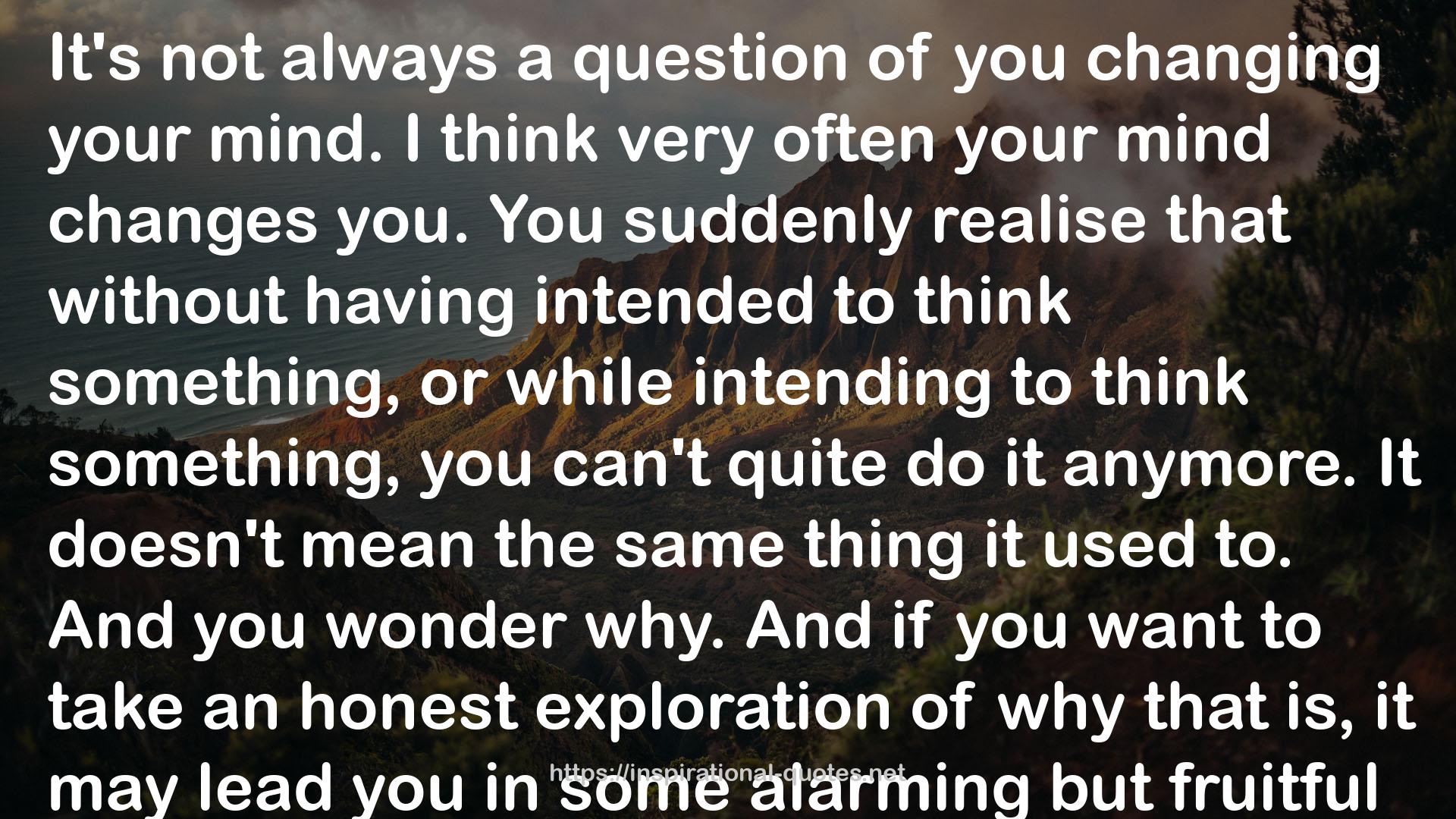" It's not always a question of you changing your mind. I think very often your mind changes you. You suddenly realise that without having intended to think something, or while intending to think something, you can't quite do it anymore. It doesn't mean the same thing it used to. And you wonder why. And if you want to take an honest exploration of why that is, it may lead you in some alarming but fruitful directions.
That's actually why I called this book Hitch-22, because it's a minor-key echo of the great Joe Heller paradox; but in a lifetime that's had quite a lot of commitment in it, and allegiance, I've now reached a point where I'm mainly associated with a group of people who I suppose could be described as adamant for skepticism, or resolve for uncertainty. And this pits us against the people who are completely sure they have all the answers - or modern totalitarians. The ones who have all the information they need, and who indeed have the truth as it's been revealed to them - they're already qualified to tell us what to do. Opposition to that lot is the cause of my life, always has been, in a way, and opposition to all forms of totalitarianism, not just as a system of thought but in the mind. "
― Christopher Hitchens
Image for Quotes

